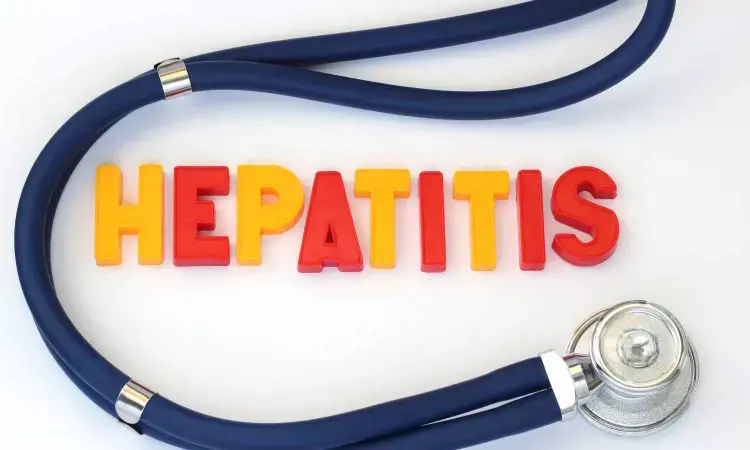- Home
- Medical news & Guidelines
- Anesthesiology
- Cardiology and CTVS
- Critical Care
- Dentistry
- Dermatology
- Diabetes and Endocrinology
- ENT
- Gastroenterology
- Medicine
- Nephrology
- Neurology
- Obstretics-Gynaecology
- Oncology
- Ophthalmology
- Orthopaedics
- Pediatrics-Neonatology
- Psychiatry
- Pulmonology
- Radiology
- Surgery
- Urology
- Laboratory Medicine
- Diet
- Nursing
- Paramedical
- Physiotherapy
- Health news
- Fact Check
- Bone Health Fact Check
- Brain Health Fact Check
- Cancer Related Fact Check
- Child Care Fact Check
- Dental and oral health fact check
- Diabetes and metabolic health fact check
- Diet and Nutrition Fact Check
- Eye and ENT Care Fact Check
- Fitness fact check
- Gut health fact check
- Heart health fact check
- Kidney health fact check
- Medical education fact check
- Men's health fact check
- Respiratory fact check
- Skin and hair care fact check
- Vaccine and Immunization fact check
- Women's health fact check
- AYUSH
- State News
- Andaman and Nicobar Islands
- Andhra Pradesh
- Arunachal Pradesh
- Assam
- Bihar
- Chandigarh
- Chattisgarh
- Dadra and Nagar Haveli
- Daman and Diu
- Delhi
- Goa
- Gujarat
- Haryana
- Himachal Pradesh
- Jammu & Kashmir
- Jharkhand
- Karnataka
- Kerala
- Ladakh
- Lakshadweep
- Madhya Pradesh
- Maharashtra
- Manipur
- Meghalaya
- Mizoram
- Nagaland
- Odisha
- Puducherry
- Punjab
- Rajasthan
- Sikkim
- Tamil Nadu
- Telangana
- Tripura
- Uttar Pradesh
- Uttrakhand
- West Bengal
- Medical Education
- Industry
Antiviral treatment in HBV infection reduces risk of kidney disease development: Study

A new study published in the journal of BMC Nephrology revealed that kidney disease (KD) caused by an infection with the hepatitis B virus (HBV), can be reduced by anti-HBV therapy.
Chronic HBV infection is linked to extrahepatic comorbidities, such as renal symptoms, in addition to potential liver-related sequelae including cirrhosis and hepatocellular carcinoma (HCC). Kidney disease (KD) and HBV infection have been linked in a number of studies. According to research that looked at Medicare and Medicaid claims data from 2006 to 2015, patients with HBV had a greater frequency of KD than matched controls, and this prevalence rose with time. Moreover, an elevated risk of developing end-stage renal disease (ESRD) has also been linked to untreated HBV.
This research investigated whether KD development is linked to HBV-related liver illness, if anti-HBV medication reduces these risks, and whether patients with HBV have a greater chance of developing KD using a big US-based electronic medical record (EMR) database. From 2006 to 2020, information was retrieved from the IQVIA Ambulatory EMR database. To improve balance across analyses, propensity score matching was used. Hazard ratios (HRs) with 95% CIs for the start of KD between groups were estimated using a Cox proportional hazards model.
The majority of occurrences were beyond the age of 55. Among patients with and without HBV (n = 11,772 each), those with HBV had a more than twofold higher risk of developing KD compared to matched controls without HBV infection.
By the time they were 75 years old, patients with HBV and concurrent hypertension, diabetes, or obesity were more likely to develop KD (19% with HBV vs. 6% without HBV). In patients with HBV and concurrent comorbidities, the cumulative probability of developing KD exceeded the additive risk of developing KD for those with the comorbidities without HBV or just with HBV. Advanced liver disease was not substantially linked to KD in HBV patients.
Antiviral-treated individuals were less likely to develop KD than untreated HBV patients. Overall, the aging HBV population is significantly impacted by these discoveries. All of these results point to the necessity of prospective research to fully comprehend how antiviral medications affect the onset of KD.
Source:
Ito, K. L., Zhang, Y., Li, B., King, A., Yee, L. J., Frenette, C., Abramov, F., Flaherty, J. F., & Malkov, V. A. (2025). Chronic hepatitis B virus infection increases the risk of kidney disease while antiviral therapy for hepatitis B virus can decrease kidney disease risk. BMC Nephrology, 26(1), 171. https://doi.org/10.1186/s12882-025-03991-x
Neuroscience Masters graduate
Jacinthlyn Sylvia, a Neuroscience Master's graduate from Chennai has worked extensively in deciphering the neurobiology of cognition and motor control in aging. She also has spread-out exposure to Neurosurgery from her Bachelor’s. She is currently involved in active Neuro-Oncology research. She is an upcoming neuroscientist with a fiery passion for writing. Her news cover at Medical Dialogues feature recent discoveries and updates from the healthcare and biomedical research fields. She can be reached at editorial@medicaldialogues.in
Dr Kamal Kant Kohli-MBBS, DTCD- a chest specialist with more than 30 years of practice and a flair for writing clinical articles, Dr Kamal Kant Kohli joined Medical Dialogues as a Chief Editor of Medical News. Besides writing articles, as an editor, he proofreads and verifies all the medical content published on Medical Dialogues including those coming from journals, studies,medical conferences,guidelines etc. Email: drkohli@medicaldialogues.in. Contact no. 011-43720751


